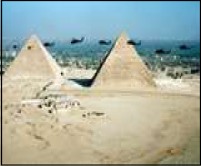Arbitration and the Arab Middle
East: Some Thoughts from a
Commercial Practitioner
By Howard Stovall
Islamic law encourages arbitration of disputes, as does the European civil law jurisdictions that have most influenced the Arab Middle East. Yet while Western businesses are increasingly using arbitration to resolve disputes in international commercial transactions, acceptance has been slower in the Arab world.
In the past, the Arab world has been suspicious of international commercial arbitration, perceiving it as biased in favor of Western interests. In support of this perception, Arab jurists refer to the arbitration of some Arab oil concession disputes in the early 1950s—arbitrations that failed to apply Arab law to the disputes.
Despite this history, however, much of the Arab World has more recently begun to embrace the institutions and infrastructure of international arbitration.
1. Historical Background
 Arbitration has been a well recognized form of dispute resolution in the Islamic Middle East, was utilized by the Prophet, and finds support in the Quran. In the 19th Century, the Majalla (an Islamic law code prepared by the Ottoman Turks) devoted an entire section to arbitration. However, the nature of such Islamic arbitration seems closer to conciliation rather than arbiter-imposed judgments.
Arbitration has been a well recognized form of dispute resolution in the Islamic Middle East, was utilized by the Prophet, and finds support in the Quran. In the 19th Century, the Majalla (an Islamic law code prepared by the Ottoman Turks) devoted an entire section to arbitration. However, the nature of such Islamic arbitration seems closer to conciliation rather than arbiter-imposed judgments.
In the historical context of trade between the Middle East and the Western world, commercial disputes had not involved arbitration. One notable exception was in the case of early Arab oil concession agreements.
2. Early Oil Concessions
The arbitration between Petroleum Development (Trucial Coast) Ltd. and the Sheikh of Abu Dhabi1 is probably most representative of the early arbitrations that caused the Arab Middle East to question the fairness of arbitration to resolve disputes. The dispute involved the geographic scope of an oil concession granted by the sheikh of Abu Dhabi. In analyzing what was to be the law governing the concession, umpire Lord Asquith expressed an opinion that remains infamous to many Arab jurists: “This is a contract made in Abu Dhabi and wholly to be performed in that country. If any municipal system of law were applicable, it would prima facie be that of Abu Dhabi. But no such law can reasonably be said to exist. The Sheikh administers a purely discretionary justice with the assistance of the Koran; and it would be fanciful to suggest that in this very primitive region there is any settled body of legal principles applicable to the construction of modern commercial instruments.”
After thereby disqualifying Abu Dhabi law as the proper law governing the concession, Lord Asquith determined that the terms of the concession called for the application of principles rooted in the good sense and common practice of civilized nations -- and although Lord Asquith determined that English Municipal Law was inapplicable as such , he determined that “some of its rules are in my view so firmly grounded in reason, as to form part of this broad body of jurisprudence.” Consequently, he applied English law principles to resolve the dispute.
The 1952 Abu Dhabi decision became a lightening rod for Arab criticism of international commercial arbitration. In retrospect, a number of factors may have contributed to Lord Asquith's dismissive view towards Abu Dhabi law. One factor certainly was the general state of ignorance in the West at that time, particularly in the commercial setting, of traditional Islamic legal systems.
A similar approach is evident in the case of Ruler of Qatar v. International Marine Oil Co. Ltd.,2 where the arbitrator held that Qatar law was the proper law to apply, but then dismissed it by stating, “I am satisfied that Qatari law does not contain any principles which would be sufficient to interpret this particular contract.” A few years later, the arbitrators in Saudi Arabia v. Arab American Oil Co. (ARAMCO)3 also held that Saudi Arabian law had to be "interpreted or supplemented by general principles of law, by the custom and practice in the oil business and by notions of pure jurisprudence."
| “[M]uch of the Arab World has more recently begun to embrace the institutions and infrastructure of international arbitration.” |
One shared characteristic of the Abu Dhabi, Qatar and ARAMCO arbitrations was the arbiters’ reliance not on domestic law but rather “general principles of law,” rooted in the laws of Western jurisdictions. This provides an historical backdrop against which international arbitration often is still viewed in some parts of the Arab Middle East. As a result, even today many in the Arab world reject international arbitration as a ‘Western’ (and hence unfair) system for dispute resolution.4
3. Arab Suspicion of International Arbitration
During the 1960s and early 1970s, many Arab countries remained deeply suspicious of international arbitration. In 1963, for example, following its loss in the ARAMCO arbitration, the Saudi Arabian Council of Ministers issued a decree generally prohibiting (except in “exceptional cases”) arbitration of any dispute to which the government or any ministry or government agency was a party.
Beginning in 1970, the Libyan government also took measures to undercut the effectiveness of international arbitration - including a law that rendered void any clause in a Libyan government contract providing for arbitration of disputes. Shortly thereafter, the Libyan government announced the nationalization of properties belonging to three oil companies, and Libya refused to participate in the subsequent arbitral proceedings that were initiated by those oil companies.
4. Changes in 1970s-1980s
4.1 Libyan arbitration
The claimants in the Libyan nationalization cases eventually reached settlements with the Libya government, and the Libyan government repealed the law prohibiting arbitration. In addition, foreign contractors began pricing their bids for Libyan government contracts to reflect the added risk of not allowing international arbitration of disputes. Eventually, the Libyan government took the economical approach and again began accepting arbitration clauses.
4.2 Snow v. Kuwait
| “[T]here has been a change in Arab perception: international arbitration, …is no longer "taboo" in Arab countries” |
In 1973, the Kuwaiti government obtained a sizeable arbitral award in Kuwait against a British firm, Sir Frederick Snow & Partners, in a dispute arising from construction of a Kuwaiti airport. At the time, neither the United Kingdom nor Kuwait was party to the 1958 New York Convention for the Recognition and Enforcement of Foreign Arbitral Awards. The United Kingdom shortly thereafter (1975) acceded to the New York Convention, but subject to the Convention’s reservation for reciprocity. Before enforcing the award in the United Kingdom, therefore, Kuwait needed to accede to the Convention. In 1978, Kuwait did accede to the New York Convention, and it was then able to successfully enforce the award in the United Kingdom.5
The Snow arbitration helped to convince Arab countries like Kuwait of the benefits of the New York Convention and, more generally, the advantages of international arbitration.
4.3 Aminoil v. Kuwait
The Aminoil v. Kuwait arbitration represented a new benchmark for acceptance of international arbitration in the Middle East. Aminoil had signed a concession agreement with Kuwait for the latter's portion of the so-called “neutral” zone adjacent to Saudi Arabia. Kuwait terminated the concession in 1977, and the parties eventually went to arbitration.
The Aminoil arbitration was particularly significant in that the Kuwaiti government participated fully, appointing legal counsel, aided by international arbitration experts. Moreover, the arbitral tribunal applied Kuwaiti law in a sensitive fashion, both recognizing Aminoil’s long-term interests to the concession and the Kuwaiti government’s right to alter the concession in the face of changed circumstances-in marked contrast to Libya’s experience in the three oil arbitrations of the early 1970s in which it declined to appear and defend itself.6
5. “Modern” Era
[T]here has been a change in Arab perception: international arbitration, previously perceived as a synonym of submission
to the Western world, is no longer "taboo" in Arab countries.7
 At least thirteen Arab countries have now acceded to the New York Convention, most recently Qatar (2002) and the United Arab Emirates (2006). In addition, Arab countries
At least thirteen Arab countries have now acceded to the New York Convention, most recently Qatar (2002) and the United Arab Emirates (2006). In addition, Arab countries
are parties to many of the bilateral and multilateral investment treaties that provide protection of foreign investments and require arbitration of disputes over such investments.
Many Arab states have modernized their national arbitration laws over the past two decades. The arbitration laws of Bahrain, Egypt, Oman, and Tunisia, and the proposed arbitration laws for Jordan and Libya, are modeled on the UNCITRAL Model Law. Algeria, Lebanon, and Qatar based their arbitration laws on the 1981 French Law of Arbitration.
In addition, new arbitral centers are being established throughout the Arab Middle East. In recent years, the Cairo Regional Center for Commercial Arbitration has handled hundreds of cases. Numerous other arbitral centers have also recently sprung up in the Middle East, including in Beirut, Tunis, Bahrain, Kuwait, and, in the United Arab Emirates, both in Abu Dhabi and Dubai.
6. Some Outstanding Issues
Despite the significant progress with Arab arbitration in recent years, there remain some outstanding issues.
For example, Arab courts have rejected some arbitral awards on domestic public policy grounds. The New York Convention does authorize state courts to refuse to enforce awards that they find to be “contrary to the public policy of that country.” However, there is some question whether this refers to narrow international public policy or broader domestic public policy.
6.1 Foreign arbitral awards in Saudi Arabia
Although Saudi Arabia acceded to the New York Convention in 1994, no foreign arbitral awards have yet been enforced in Saudi Arabia under the New York Convention. Saudi Arabia has been described as ‘traditionally hostile’ to the recognition and enforcement of nondomestic arbitral awards, and most lawyers assume that any arbitral award made abroad must not conflict with Islamic law or general “public policy” prevailing in the Kingdom. This could include awards requiring the payment of interest (prohibited as riba under Islamic law), certain types of insurance and financial transactions (prohibited as gharar under Islamic law), or even an arbitration applying non-Saudi governing law. One foreign arbitration was reportedly denied enforcement in Saudi Arabia because the arbitral panel included a woman.
6.2 Dealer protection laws
Most Arab states have enacted so-called “dealer protection” laws that grant statutory rights to qualified local commercial agents and distributors, and designate local courts to hear any relevant disputes.
Thus, although Lebanon has acceded to the New York Convention,
the Lebanese courts are not likely to recognize the parties' foreign arbitration clause in a Lebanese commercial agency agreement. Article 5 of the Lebanese Commercial Representatives Law provides: “Notwithstanding any agreement to the contrary, the courts of the place where the commercial agent performs his activities shall have jurisdiction in disputes arising from the commercial agency agreement.” Lebanon's highest court (Court of
Cassation) has interpreted this provision to be a matter of public policy, giving exclusive jurisdiction to the Lebanese courts over commercial agency disputes notwithstanding an arbitration clause in the parties’ commercial agency agreement. The United Arab Emirates applies a similar rule for commercial agency concession agreements in that country.
By way of contrast, recent amendments to the commercial agency laws in Bahrain, Oman and Qatar all now recognize the ability of the parties to select domestic or foreign arbitration to resolve their
commercial agency disputes. For example, the Qatari Commercial
Agency Law grants jurisdiction to the Qatari courts “provided there is no agreement otherwise,” and also states that “any arbitral award in a dispute arising out of the agency agreement shall be deemed final”.
6.3 Bechtel case (Dubai)
In Arab states that have not yet enacted modern arbitration laws, the existing legal rules can impose some surprising evidentiary and procedural requirements for the arbitral parties and the arbitrators.
For example, Bechtel contracted with the Dubai Department of Civil Aviation (“DDCA”) to oversee a construction project. A dispute subsequently arose between the parties, who proceeded to arbitration in Dubai. Bechtel was awarded US$24.4 million in damages and the DDCA filed a petition in the Dubai courts, seeking to overturn the arbitral award.8
The Dubai court overturned the award on the ground that the witnesses in the arbitration had not taken oaths in the form prescribed by Dubai law. The Dubai court held that “[a]dministering oath on witnesses is an imperative requirement under Article 211 of the Civil Procedure Law, which the arbitrator should comply with ... .”
Another Dubai arbitration award was recently overturned by the Dubai courts because the arbitrators had failed to comply with an additional technical rule under the UAE Civil Procedure Law -- if the reasoning and the decision of an award are on separate pages, the arbitrators must sign all pages, not simply the last page containing the ultimate decision.
 6.4 Chromalloy case (Egypt)
6.4 Chromalloy case (Egypt)
Even in jurisdictions that have enacted modern arbitration laws,
awards can be overturned by local courts that jealously guard rules deemed to be a matter of local public policy.
Chromalloy signed a contract with the Egyptian Ministry of Defense (“MOD”) to provide equipment and services related to a fleet of helicopters. The MOD terminated the contract alleging Chromalloy’s breach, and the parties referred their dispute to arbitration in Cairo under Egyptian law. The arbitral panel subsequently awarded damages to Chromalloy, and the MOD appealed to the Egyptian courts, seeking nullification of the arbitral award.
Under Egyptian arbitration law, the courts may annul an arbitral award for only limited grounds, one of which is if the arbitration decision fails to apply the law that the parties agree is to govern the dispute. The parties had agreed to Egyptian governing law, which the court held to include Egyptian administrative law when the Government is contracting in connection with a public service. The arbitral panel failed to apply Egyptian administrative law to the dispute (relying instead on general principles of Egyptian civil law). Therefore, the court nullified the award because the arbitral panel failed to apply the law that the parties agreed would govern the dispute: “As it is prescribed that arbitration is an exceptional way of settling disputes, based upon deviation from the ordinary ways of litigation before the Courts and the guarantees that they provide, therefore it is necessarily limited to what the parties to the arbitration intend to be presented to the arbitral panel.”9
7. Conclusion
| “Even in jurisdictions that have enacted modern arbitration laws, awards can be overturned by local courts that jealously guard rules deemed to be a matter of local public policy.” |
Globalization proceeds, as businessmen look for common ground, building bridges through trade and investment between countries and regions. In large part, the Arab world is actively engaged in this economic process. However, Arab legal systems continue to consider arbitration as an exceptional means for the settlement of disputes. In some instances, arbitration in Arab government contracts is still not permitted. In fact, the initial hostility towards arbitration has not completely disappeared in some Arab states which are reluctant to renounce the jurisdiction of their national courts in favor of arbitration.
In part, this reflects a perception that Arab courts, a symbol of national sovereignty and independence, are more respectful than international arbitrators to local public policy and the proper application of local law. Thus, Western businesses will continue to face challenges to acceptance of international arbitration in at least some contexts in the region. And yet, we now are addressing the legal issues with a vocabulary that is increasingly shared between the Western world and the Arab Middle East.
E N D N O T E S
1. In the Matter of an Arbitration between Petroleum Development (Trucial Coast) Ltd. and the Sheikh of Abu Dhabi, 1 Int’l & Comp. L.Q. 247 (April 1952); Int’l Law Rep. 144 (1951). back
2. Ruler of Qatar v. International Marine Oil Company, Ltd., 20 Int’l Law Rep. 534 (1953). back
3. Saudi Arabia v. Arabian American Oil Company, 27 Int’l Law Rep. 117 (1963). back
4. Brower & Sharpe, “International Arbitration and the Islamic World: The Third Phase”, 97 Am. J. Int’l Law 643, at 645. back
5. Kuwait Minister of Public Works v. Sir Frederick Snow & Partners, [1984] All England Law Reports 733. back
6. See, e.g., Redfern, “The Arbitration between the Government of Kuwait and Aminoil”, 55 British Year Book of Int’l Law 65 (1984). back
7. Kemicha, “Arbitration in the Arab World in the Twenty-First Century”, in Ballantyne and Stovall, eds., ARAB COM. LAW: PRINCIPLES AND PERSPECTIVES (2002). back
8. See, e.g., In re Arbitration Between International Bechtel Company Ltd. and Dubai Department of Civil Aviation, 300 F. Supp 2d 112 (D.D.C. 2004). back
9. Ministry of Defense v. Chromalloy Aeroservices Company, translated and reproduced in 2 Yearbook of Islamic and Middle Eastern Law 585 (1995). back
